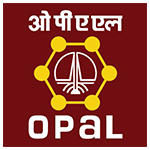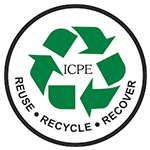Sustainable Plastics: Issues, Challenges and Remediation
PLASTICS - AVOID, REUSE, RECYCLE

Erik Solheim
Executive Director,
UN Environment Programme
Mahatma Gandhi used to say Cleanliness is Godliness. So it is a matter of making life cleaner. Some nations insist on keeping their cities clean.
Ahead of the World Environment Day on June 5, Erik Solheim, Executive Director, UN Environment Programme, stresses on the need to tackle the menace of plastic waste through multi-pronged strategy that would reduce use of unwanted plastics, put focus on reuse and recycling of plastic products. Interview with Outlook magazine, Solheim underlines need for government and industries to work together in this sustainable effort...
Q. How are you proposing to take forward your campaign to tackle plastic waste?
To tackle the issue of plastic waste we need to attack it on three different fronts. First is citizens’ action. We have seen some fantastic clean up on the beaches of Mumbai by activist Afroz Shah, so we need to engage more citizens to get them to be more interested. Secondly, we need the government to put in place market regulations to stop plastics we don’t need. And thirdly we need businesses to come up with much better plastic products. If we divide plastics into different types there are some products which we don’t need. Nobody needs things like plastic straws, as we can very well to drink without them from the bottle or the glass. We don’t need plastic microbeads that are added to soaps and perfumes. They can be replaced with other products so let us get rid of plastics that we don’t need. Of course we need plastics to bottle or preserve food better. So let us look into whether they can be recycled, reused or replaced with better products that will degenerate in nature. Coca Cola has said they will recycle all their bottles within the next two years. Some of the big global companies have said their bottles will soon be able to completely degenerate in nature just like when you throw away a potato or an apple and they degenerate by themselves. If that happens in the case of plastics the problem will be much less. Then there are plastics like those are used in the cars as they are lighter and help to consume less fuel. That is very useful but that plastic should also be recycled. So avoid, replace and recycle
Q. In India littering or throwing away of plastics after single use is very rampant. The trend is no different from those in many other countries. What initiatives would you recommend to check this habit which is the bane of municipalities and environment?
In India littering or throwing away of plastics after single use is very rampant. The trend is no different from those in many other countries. What initiatives would you recommend to check this habit which is the bane of municipalities and environment? place, so also in Africa, Rwanda is a very clean place and there is huge, huge benefits of that. So you need to spread the message across........ While people tend to strew things in parks but nearly all Indians keep clean at home. Take that attitude to the society at large and things will come a long long way.
Q. Coming to the R&D...New products including in cosmetics are coming into the market. There is a rise in use of plastics and many of these products are being dumped in countries like India where there is lack of regulation on such products. Do you recommend regulations to check multinational companies from dumping such products in countries like ours? Many of the products get dumped in the seas and other water bodies and land on our table through fish we consume. Consumers by and large are not even are of the harm these products can pose to human health and environment....
There should be regulations in place to ensure that these big multinational companies bring back the waste and recycle it or ensure that these products have ability to degeneration. National governments can put in place standards and regulations in working with businesses. There is lot of momentum now within business for change. As I mention this is evident in the case of companies like Coca Cola as consumers want it but they don’t want their products to be banned on beaches across the world. Same pressure should be brought on to bear on people who make products like soaps. As more people tend to buy smaller and smaller amount because they cannot afford to buy a bigger product, companies need to make much better products. I am sure they can considering how they are using new technologies like Artificial Intelligence to come up with new products. I am sure they can do the same in the field of plastics and come up with much better products.
Q. What do you have to say about the whole business of managing plastics through recycling? Considering the huge infrastructure demand to meet development needs, how best can plastics be utilized as in making of roads, or making sleepers by the railways, etc?
It is important that government works with business to find ways to regulate the market so that they reduce use of plastic and recycle it. I think that can happen within the plastic industry. Some companies want to change as they understand the need to change and be at the forefront of that. But there are others that are lazy and backward, and they don’t want to change. This creates problems. There are a number of ways in which recycled plastics can be used. In the US lot of products including recycled plastic T-shirts are being made. We have a strong partnership with many garment companies. We have been working to make the fashion industry more sustainable and green. We are also working on other recycling capacities. All this shows various ways in which you can use recycled plastics. Over the next few months we plan to work with the international plastic business to showcase all the new innovative products so that people can see them and also scrutinize and examine them. This will help the companies and scientists to know products that can be recycled or will degenerate in nature. This will happen very fast. People forget that 14 years back, smoking was normal and allowed in every restaurant in the world and now it is banned in many areas for being harmful to health. It show if someone takes the lead others will soon follow. That will happen in the case of plastics too..





